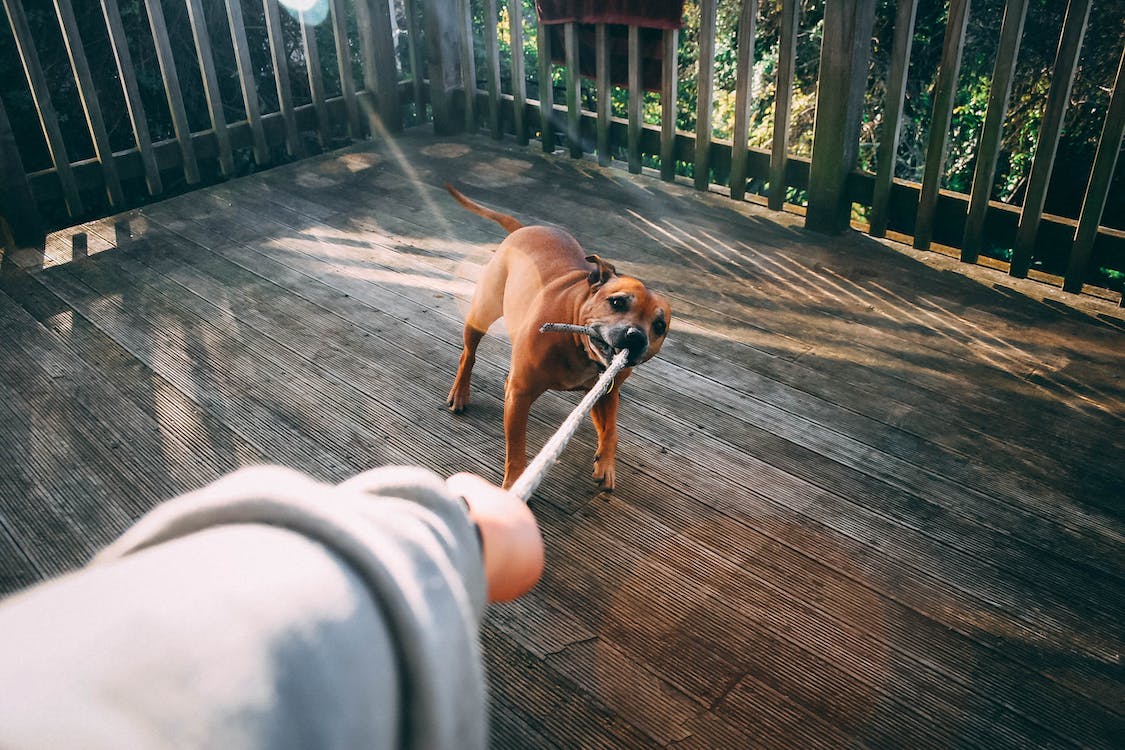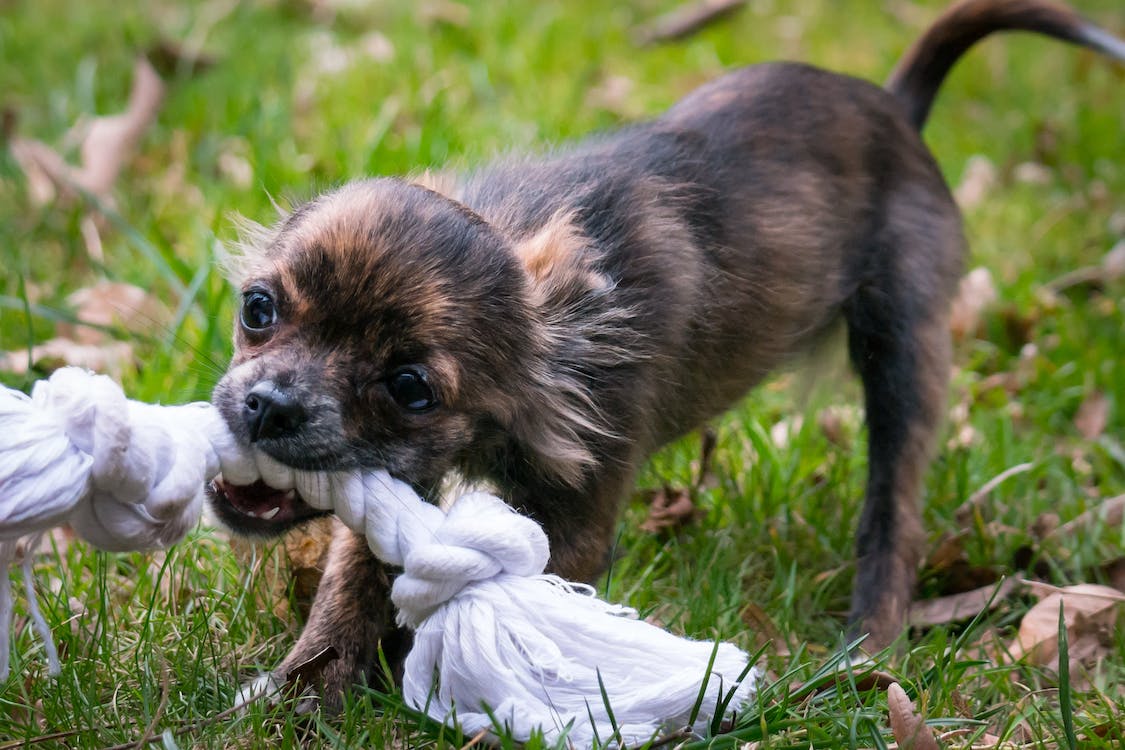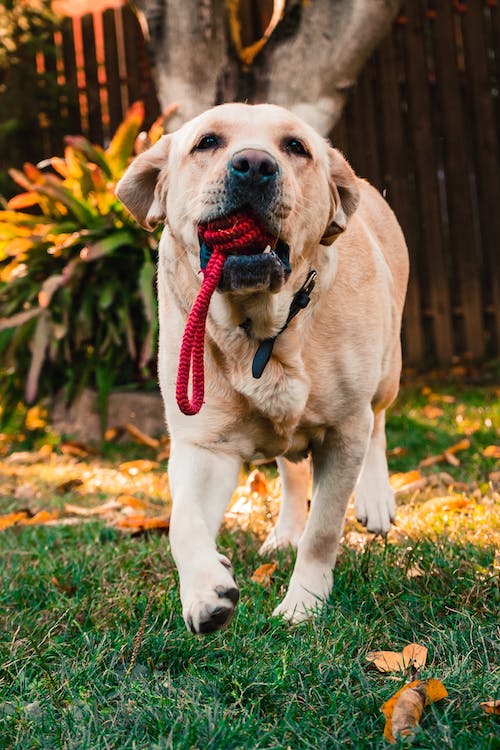You’re playing with your dog, and suddenly they whip around and nip at your hand or arm. While painful, this type of biting stems from overstimulation versus true aggression. Learning to curb arousal biting relies on recognizing triggers, controlling interactions, and teaching calmer manners.
Understanding Arousal Biting
Also known as play biting or nip biting, this behavior happens when dogs get overly excited or worked up. Typical causes include:
- High energy and inability to settle
- Lack of bite inhibition training as a puppy
- Trying to initiate play through mouthing like they did as puppies
- Change in routine or environment causing stress
- Attempting to self-soothe high arousal states
- Poor impulse control
- Insufficient physical and mental stimulation
While the bites seem playful, allowing them to continue can lead to accidental injuries. Intervention is key.

Techniques to Stop Arousal Biting
Use these methods consistently when your dog gets snippy from excitement:
Redirect to toys – Place an appropriate chew toy in their mouth instead to teach what is ok to bite. Praise gentle play.
Freeze briefly – Stand still and avoid interacting with biting. This signals play stops with teeth on skin.
Leave the room – For persistent biting, immediately step out of reach for 1-2 minutes to teach biting ends fun.
Offer alternatives – Shift focus to training cues or easy tricks they know to redirect energy in a positive way.
Remove stimulation – Put away exciting toys and end vigorous play if it leads to uncontrolled biting.
Practice impulse control – Require polite behaviors like waits and eye contact before giving affection or meals.
Keep encounters calm – Discourage jumping up and remain calm in tone, volume, and movement to avoid revving your dog up.
Avoid physical punishment – Hitting, wrist slaps, or yelps just add arousal. Use distraction and disengagement instead.
Consistency and patience alter the habit as your dog learns arousal biting has the opposite intended effect. But prevention is also key.
Preventing Arousal Biting
Make biting less tempting by:
- Providing daily hard exercise like running and swimming to burn off energy. Mental games help too.
- Working on impulse control and obedience skills via training sessions. Cues like “enough” teach settling.
- Discouraging mouthing and chewing early in puppyhood – it’s not cute!
- Keeping playtime with people calmer to avoid whipping your dog into a frenzy. Settle them when you notice first signs of hyperactivity.
- Adding enrichment like food puzzles and chews to productively occupy them.
- Limiting aggressive roughhousing that mimics fighting and biting.
Proactively avoiding and redirecting arousal gives fewer opportunities for wound-up biting. But if it persists, seek help.

When to Seek Professional Help
Consult an accredited trainer or behaviorist if:
- Biting continues despite diligent training efforts.
- Aggressive body language like stiffening, hard staring, growling accompanies biting.
- Bites ever break skin or cause bruises/pain.
- Children or vulnerable individuals are at risk.
- You suspect anxiety or lack of socialization fuels biting.
With personalized assessment, trainers identify triggers and craft customized protocols using desensitization, counterconditioning, and positive reinforcement to curb biting long-term. Medications may also help in some cases.
Why Does My Dog Bite Me and No One Else?
If your dog directs biting exclusively at you, common reasons include:
- Not establishing boundaries and predictable routines
- Allowing behaviors like nibbling, jumping, and mouthing you find unacceptable
- Failing to use distraction, teaching, and impulse control with them
- Letting play get overstimulating instead of ensuring proper winding down
- Punishing or scolding them, which fuels reactive arousal biting
- Misreading their body language and pushing interactions when uncomfortable
Reinforce desired manners consistently, especially with you. Seek professional guidance to overcome established bad habits.
Conclusion
While frustrating, arousal biting is a common issue stemming from exuberance versus true aggression. Redirection, impulse control, exercise, enrichment, proper socialization, and training transforms these sharp puppy behaviors into polite adult manners. But professional help provides solutions if inappropriate nibbling persists. Understanding this form of biting is key to reforming it into happier, safer interactions.
